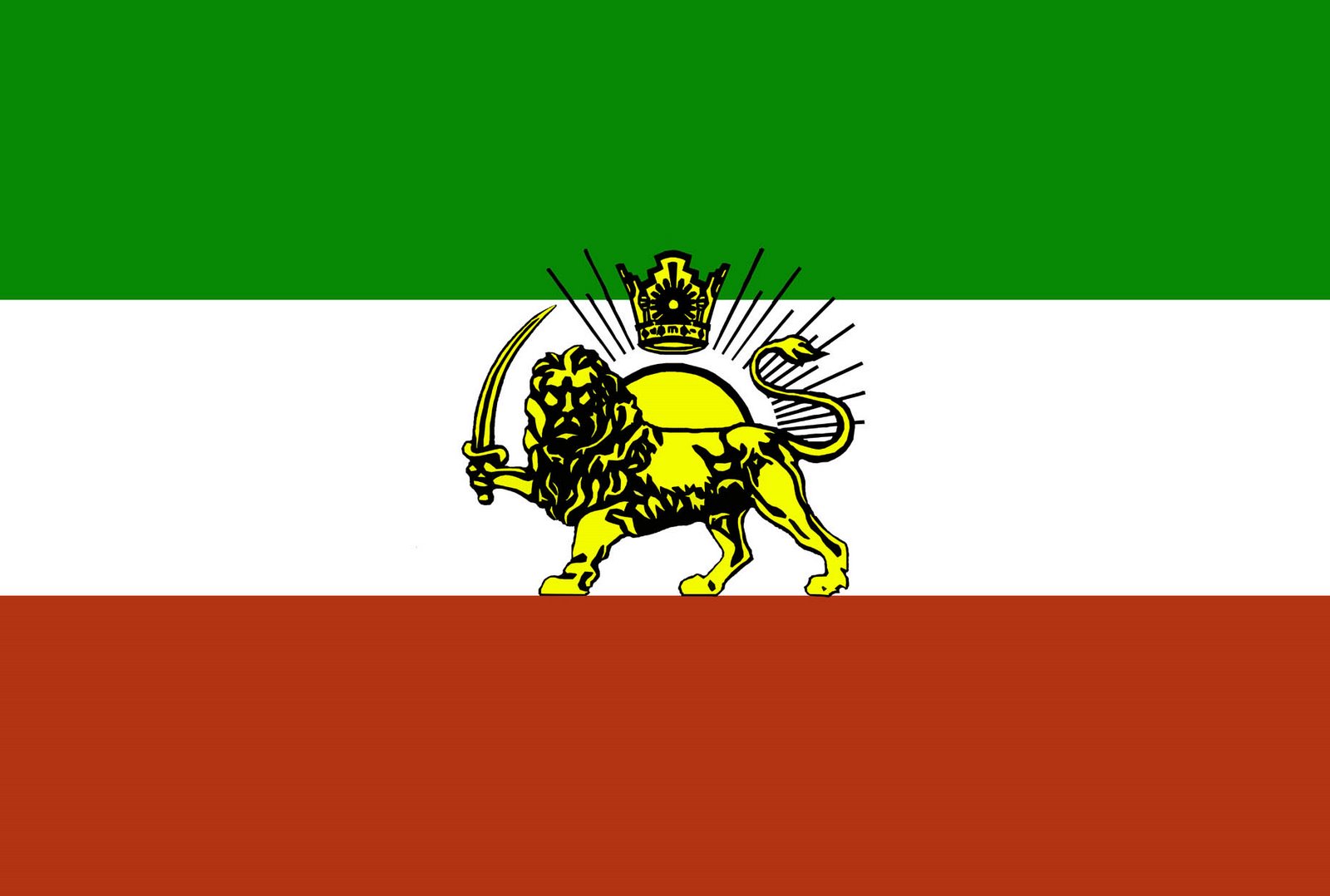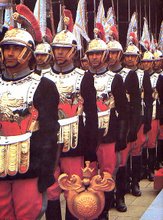
How to Topple the Mullahs
January 18, 2007
FrontPageMagazine.com
Kenneth R. Timmerman
For now, the nutty recommendation of the Baker-Hamilton Iraq Study Group that the United States should engage in direct talks with Syria and Iran appears to have been mooted by events on the ground.
U.S. military forces have caught Iran red-handed – twice – over the past few weeks in Iraq, No one can possibly doubt any longer what I and many others have been saying for some time: that Iran is involved on the ground in Iraq and is aiding both Sunni and Shia insurgents in an effort to blow that country apart.
But like all bad ideas in Washington, rest assured that the Baker-Hamilton recommendation of direct talks will come back. Study group members can be counted upon to argue that the capture of top Iranian Revolutionary Guards and intelligence officials in Iraq only proves their point that Iran has real influence and thus must be dealt with directly, to prevent them from playing the spoiler’s role.
And by the way, they will argue, what’s the alternative? Nuke Iran?
It is regrettable and truly astonishing that President Bush has not applied to Iran and to Syria the same global vision he has so eloquently displayed in regards to Iraq and other fronts in the global war against the Islamic jihad. Because there is a clear alternative to the capitulation offered by Baker, Hamilton, and their advisors.
Instead of rewarding these regimes, the United States should use its tremendous resources to contain Syria and to undermine the legitimacy of the Islamic Republic of Iran. Such a policy is not far-fetched, nor is it based solely on ideology, although compelling moral arguments can be made in its favor. Instead, it serves the national and historic interests of the United States.
.......................
The Islamic Republic of Iran, however, is made of different stuff. This is a regime that over the past twenty-seven years has been willing to pay a tremendously high price in blood and treasure to pursue its radical policies. Since the 1979 revolution, the United States has repeatedly attempted to “influence the behavior” of the regime, without success.
As I wrote in these pages just last month, the Baker-Hamilton proposal is a warmed rehash of the same failed policy we’ve been trying since 1979.
There is only one approach that will get the attention of the Tehran’s revolutionary and clerical leaders; and this is the one approach that Baker and Hamilton – and the foreign policy Establishment - have rejected: support for regime change.
This is the one approach that the United States and its allies have never tried. Short of an all-out U.S. military assault on Iran, it is the only approach that can avoid a future Persian Gulf region dominated by a radical Iranian regime armed with nuclear weapons. Saying pretty-please, as the Baker-Hamilton group proposed, just isn’t going to work.
Empowering Iranians to change their regime will be costly. From having worked with opponents to the Iranian regime over the past twenty years, and studied the requirements of opposition groups currently working inside Iran, I believe the United States should be prepared to commit a minimum of $300 million over an initial six month period if we are to have any hope of a successful outcome.
The very first step must be the appointment by the President of a Special Envoy for Iran, with full presidential authority to convene a loya jirga type meeting of several hundred prominent Iranian leaders. The majority of those able to attend such a meeting will of necessity come from the diaspora; some will come secretly from the inside.
That meeting should focus on establishing a broad declaration of principles around which the various opposition factions can unite, and then electing an executive committee that will include authorized spokespersons for the pro-freedom movement. (Much of the ground work for such a broad meeting of Iranians has already been accomplished over the past two years, thanks to the Iranians themselves).
Over the next six months, the following tasks must be accomplished:
- Drafting a detailed game plane for organizing massive non-violent protests against the regime in Tehran. This game plan must include strategies for neutralizing the Revolutionary Guards, the bassij corps, and paramilitary gangs loyal to extremists in the current regime, and for preventing the Islamic-Marxist Mujahedin Khalq, which worked with the regime during the early years of the revolution, from exploiting the situation and seizing power in a putsch. It must also include a strategy for providing financial support to striking workers and professionals;
- Specific policy recommendations for the United States and our allies, so we can best leverage tools available to governments and international organizations for delegitimizing and destabilizing the Tehran regime. (The U.S. Department of the Treasury has made a modest start here).
- Identify, contact, and train key operations officers on the ground in Iran;
- Identify and pre-position secure communications and other equipment needed to coordinate operations inside Iran; and
- Establish a finance committee tasked with harnessing the tremendous resources of the Iranian diaspora, who have withheld major support to the pro-freedom movement because they rightly judged that the movement lacked U.S. support.
Broadcasting must be an integral part of any comprehensive political plan to challenge the legitimacy of the Iranian regime and promote non-violent regime change. However, none of the $300 million fund should go to expanding the Persian language service of Voice of America or Radio Farda, the Persian service of Radio Free Europe/Radio Liberty. Both have failed utterly to live up to the goal for which they were established.
Rather than communicate an American viewpoint during Iran’s proxy war against Israel this past summer, for example, VOA television sent reporters to Beirut to interview top Hezbollah leaders – the same Hezbollah leaders Iranian state television was treating as rock stars.
As for Radio Farda (“Tomorrow”), established to be a “surrogate” for the free media Iranians could not access inside their own country, it became a laughing stock by championing Iran’s failed reformist president, Mohammad Khatami.
Since Ahmadinejad took over as president in 2005, Radio Farda has adopted the “music-first” model of Westwood One and become simply irrelevant. Both are a waste of U.S. taxpayer dollars and should be downsized or eliminated altogether.
Instead, funding should be provided to private Iranian broadcasters who understand the political thirst of their compatriots and know how to package a compelling message in a professional format. The allotment of the broadcasting budget should be determined by the Executive Committee, with a preference to pluralism and professionalism.
The U.S. intelligence community can play a support role in this effort, but should not take the lead. The last thing we need is to ask the Central Intelligence Agency to organize the Iranian opposition.
On the contrary, much of this program can – and must – be accomplished overtly. Having the President of the United States openly support the aspirations of the Iranian people, at the same time devoting $300 million to back the effort, will have a tremendous impact on pro-democracy forces inside Iran, without yet putting lives at risk.
At the end of the initial six month period, the President can then decide if he believes the program is viable. If so, he can pull the trigger on the plan devised by the pro-freedom groups in coordination with his Special Envoy. The U.S. will need to commit another $500 million or so to the effort of organizing and supporting the massive non-violent protest movement throughout Iran. This will be supplemented by another $500 million or more raised from the Iranian diaspora.
This is expensive, for sure. But it is far less costly than the alternatives of facing a nuclear-armed Iran, or having to send in U.S. troops to prevent Iran from deploying or firing nuclear weapons.
The Baker-Hamilton approach of engaging the terror-masters brings great risks and few rewards. It sends a clear message that terrorism, even conducted against the world’s sole superpower, is a strategy that works. Engagement with Iran and Syria will foster more terror, not curtail it.
Furthermore, engaging regimes that systematically repress their own people and seek to destroy a bold democratic experiment on their borders, sends a clear message to pro-democracy forces inside those countries that their efforts can never succeed.
In one simple stroke, the Baker-Hamilton approach will have emboldened our enemies, and deterred our potential allies. And yet, for reasons that only the chattering classes can explain, this goes by the name “realism.”
Supporting regime change by Iranians, while containing Syria, not only makes the best strategic sense for America. It is the right thing to do.
























2 comments:
Did you read fakhravar recent interview?
now i have ;) thanks for bringing it to my attention winston.
Post a Comment